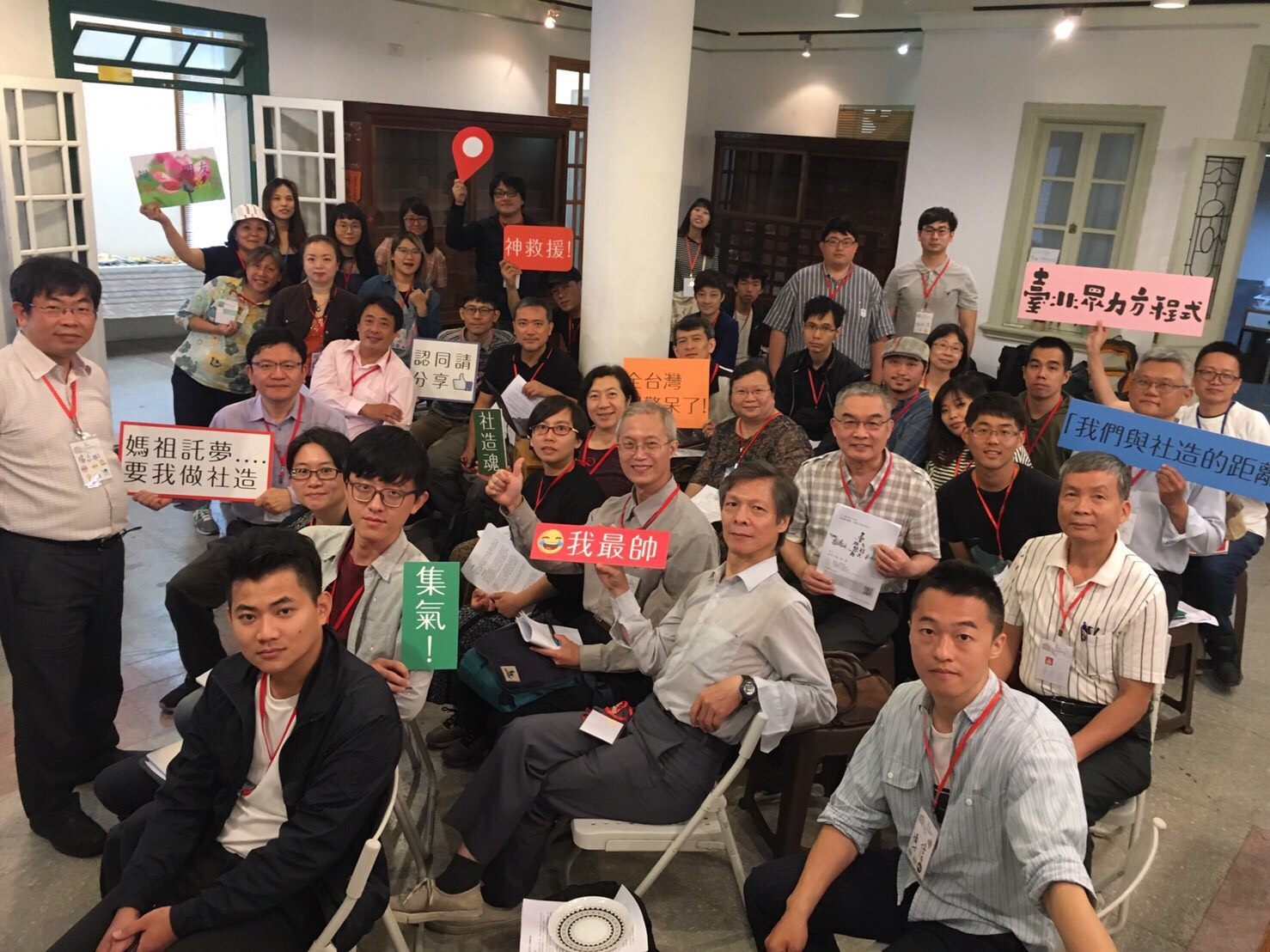Community Development Leaders Gather for “Mazu-Endorsed” Taipei Collaborative Formula
 On April 28, the Taipei City Urban Regeneration Office (URO) hosted the 2019 Taipei Collaborative Formula community issue hackathon in the former site of Ren An Hospital, which attracted the participation of community organizations, non-profit organizations, and other young people from all districts of Taipei City.
On April 28, the Taipei City Urban Regeneration Office (URO) hosted the 2019 Taipei Collaborative Formula community issue hackathon in the former site of Ren An Hospital, which attracted the participation of community organizations, non-profit organizations, and other young people from all districts of Taipei City.
Director Fang Ting-an of URO initiated the event; a dream team of community innovation advisers, including community development experts who have long been devoting in the local communities such as Professor Huang Jui-mao of Department of Architecture at Tamkung University, Project Manager Huang Fang-hui of Pink Panther Cultural Business Co., Ltd., and Founder of crowdfunding platform Red Turtle Lin Chun-chou, were invited to offer insights and exchange ideas with community workers. An overflow of nearly one hundred participants showed up at the former Ren An Hospital, as community development leaders gathered from near and far to collaborate on and spark new ideas for community development projects.
The community issue hackathon event centered around five major themes: Green Living, Ecological Environment, Co-living Space, Community Co-prosperity, and Old Community Regeneration. Participants were asked to brainstorm about community related topics and were all qualified to send in their proposals, and then all the participants voted on the final topics to be discussed. Among the themes discussed, topics on Community Co-prosperity were most popular. Community organizations from various districts were all active in offering their thoughts, especially in regards to metropolitan topics, such as the aging population and low birth rate. Their lively discussions brought forth creative proposals like service exchanges, and community children-led guided tours.
The event broke down the existing model of an issue-based hackathon and emphasized on exchanging ideas, matchmaking and experience sharing. Participants were allowed to move freely about the event venue and discuss in groups, making the topics flow within the venue, spreading them around, and emphasizing continual interactive vibes. Halfway through the event there was a segment called “topic advertising”, where many participants, exuding self-confidence, shouted out their beliefs and successfully found allies to actualize their ideas. Moreover, teams of community organizations and new additions of community partners were also formed in an effort to stimulate further dialogues on community topics. The execution unit also established a consulting corner for the adviser team on the first floor of the venue, which was used for the various discussion groups to “register” for guidance on their community works. Doctor’s tables and medical equipment once used in the former hospital were still left at the venue, helping to create an interesting scene of an old-time hospital.
Director Fang Ting-an of the URO stated that Taipei City has a vivid metropolitan ambiance where people’s connections to one another are flimsy; more strenuous efforts are necessary to converge everyone in their communities towards consensus and to push for general community projects. In light of this, URO has been supporting the Community Development Locations Matchmaking and Empowering Project, from which the Taipei Collaborative Formula was initiated; the empowering theme focuses on the three formulae: Start up Empowering, Community Exclusive Accounts, and Community Fundraising. These are aimed at assisting communities to produce innovative ideas for community development. In the internet era, social media and internet platforms have been utilized as new tools for community development efforts, where public and private resources are collected to reinforce city residents’ capabilities of participating in community development. In addition to being the operating model to revitalize community economies, the innovative system also allows city residents to participate in public affairs so that ultimately people will all be coming together for common good.
The Community Issue Hackathon event invited participants of various backgrounds to attend multitudinous discussions within a short period of time, and it has brought community development talents from different fields together for cross-industry collaborations on solving metropolitan issues and brainstorming further innovative solutions. The issue hackathon also connected varying community organizations for the formation of Taipei City’s robust social network. The organizers hope that the participants will extend their achievements from the hackathon and be active in submitting “Community Development Good Ideas” as part of the Taipei Collaborative Formula project, thereby enriching the overall empowering project.
Calling for submissions of “Good Ideas” for the 2019 Taipei Collaborative Formula is effective immediately and will end on May 5, 2019. Any individual, student organization or civic organization from Taipei City who is enthusiastic about public affairs is welcomed to play a role in community development. Through the advisers’ one-on-one guidance, all good ideas will eventually be actualized in the communities. For more related information, please visit Taipei Collaborative Formula website: napcucf.wixsite.com/crowd or Taipei Community Development Leaders (臺北社造咖) Facebook page: www.facebook.com/community.taipei/. Or feel free to contact specialists Ms. Chu or Ms. Liao at 02-23685136/0987132760 or Ms. Wu from the event organizer’s Coordination Section, Taipei City Urban Regeneration Office at 02-27815696 ext. 3121.

![Taiwan.gov.tw [ open a new window]](/images/egov.png)
